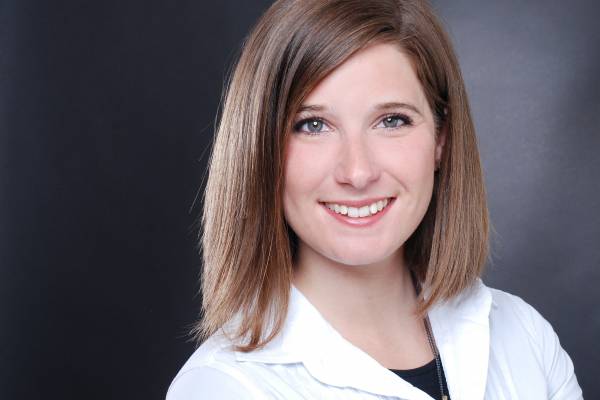Voices of Leading Scientists on the Occasion of Two Years of Yscript – Michaela Scheid
In April 2022, Yscript embarked on a mission to develop a customised yeast-based messenger RNA factory platform for the large-scale and cost-effective production of mRNA therapeutics. After two years, we now look back together with our leading consortium members on the work done and progress achieved so far.
Read the interview with Michaela Scheid, Senior Project Manager at European Research and Project Office:
The past two years went by quickly, we are in the second half of the project now and a lot of work has already been conducted. What is the status of the work you are conducting in the project? What would you say is the biggest success/breakthrough that has been achieved so far?
“As Leader of WP6, I, together with the EURICE team, am mostly involved in Communication, Dissemination and Exploitation – activities that started on day one and will be conducted even after the project end. Right now, we are working to start the dissemination of first results and push our communication and exploitation strategies a bit further.
At the moment, besides our project website, I am really proud of the video and statement campaigns we had with our partners. They give a human face to the project and show how exciting the science behind complex procedures such as factoring RNA from yeast really is.”
Research projects come with many uncertainties and challenges. What challenges came up in the course of the past two years and how did you manage to overcome them?
“Yscript – as many research projects – is built-up like a chain, everything is connected. So, if there is a delay or difficulty in one step, this also affects most of the other parts and many partners have to work together to find a good solution. For the EURICE team this means we use our unique perspective and experience in collaborative research projects to guide the partners in this. Mostly, we make sure that partners manage their intellectual assets well within the consortium, plan early how to exploit their results and don’t forget to highlight and communicate what has been done and achieved along the way.”
Looking ahead, what steps are you looking forward to?
“I am very excited to see the results, if and how the yeast mRNA factories will work out and to then refine our strategy to communicate and disseminate this together with our partners.”
A challenging project like Yscript is teamwork. Have there been any personal encounters within or outside the consortium in the last two years that have had a lasting impact on you?
“Definitely. I started my work in Yscript shortly after my maternity leave and I was (and still am) greatly impressed by the number of female lead scientists we have in the project. More than half of our work packages and teams are led by female scientists: Kasia Pachulska-Wieczorek, Mara Freire, Fani Sousa, Fayza Daboussi – all of them are inspiring in their own way. And of course there is Chantal Pichon, our Coordinator, one of France’s leading biochemists conducting cutting-edge science, building up a laboratory and speaking at conferences all over the world. She still makes time to discuss management procedures to make sure we move ahead altogether and is really committed to this project.”
Yscript is an EIC pathfinder project – how are your experiences with the programme so far? Do you see any difference to other EU funded projects you are involved in?
“Despite the fact that all EU-funded projects within the framework of Horizon Europe address activities to boost Dissemination & Exploitation, I clearly see the difference that EIC-funded projects (including EIC Pathfinder) are planned and implemented as a “pitch” – namely, to raise attention, interest and gain valuable feedback for a disruptive innovation and corresponding business idea. The project is very much driven by design thinking ideas and solutions to stakeholders which I feel very enthusiastic to work in – contributing to sustainable follow-up strategies and plans.”






